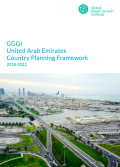
This Country Planning Framework (CPF) sets the strategic direction for the Global Green Growth Institute (GGGI) in the United Arab Emirates (UAE) over the period 2018-2022.
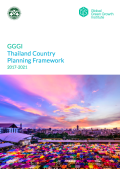
This Country Planning Framework (CPF) sets the strategic direction for the Global Green Growth Institute (GGGI) in Thailand over the period 2017-2021.
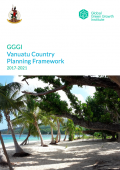
This Country Planning Framework (CPF) sets the strategic direction for the Global Green Growth Institute (GGGI) in Vanuatu over the period 2017-2021.
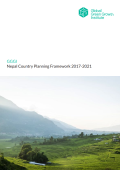
This Country Planning Framework (CPF) outlines the five-year program and joint commitment that the Global Green Growth Institute (GGGI) and the Government of Nepal (GoN) have pledged to achieve in the period 2017-2021.
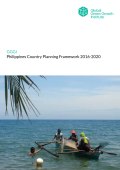
This Country Planning Framework (CPF) for the Philippines presents the strategic initiatives that the Global Green Growth Institute (GGGI) aims to pursue in partnership with the government.
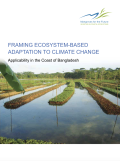
This case study, Framing Ecosystem-based Adaptation to Climate Change: Applicability in the coast of Bangladesh , describes six different types of EbA currently being practiced in the coastal zone of Bangladesh; and an analysis is made in line with the ecosystem services derived from such ecosystem-based interventions, including relevant policy and institutional aspects.
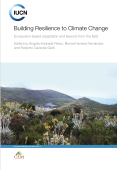
This publication, Building Resilience to Climate Change: Ecosystem-based adaptation and lessons from the field , contains eleven case studies covering different ecosystems and regions around the world. Its aim is to summarize some current applications of the Ecosystem-based Adaptation (EbA) concept and its tools used around the world, and also draw lessons from experiences in conservation adaptation.

The Role of Sustainability-oriented Social Enterprises in Boosting Green Livelihoods and Business Opportunities in Rural Contexts reviews the cases of capacity building and knowledge improvement of rural livelihood in rural communities related to sustainable and low-carbon solutions. The reviewed sub-cases show that implementation of local integrated systems of solutions addressing energy, water, shelter and other livelihood needs at community level require paying major attention to enabling social processes and organisational capacities rather than only focusing on a given technological innovation.

This case study Fly Ash Bricks: Brick production using fly-ash from thermal power plants in India shows how a green business initiative can be a win-win for power plant operators, the environment and local communities.

This case study Africa Illovo Sugar: Developing climate resilience through collaboration shows how businesses can work together to reduce social, environmental and economic impacts of their production.
